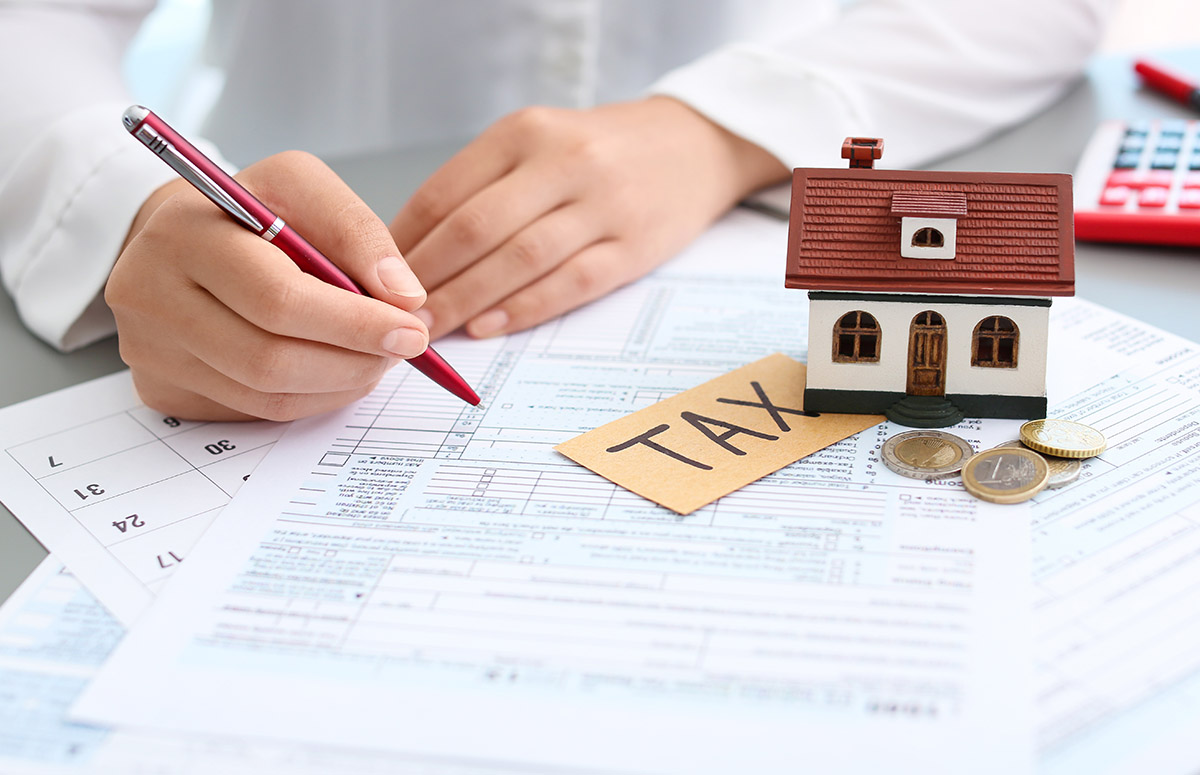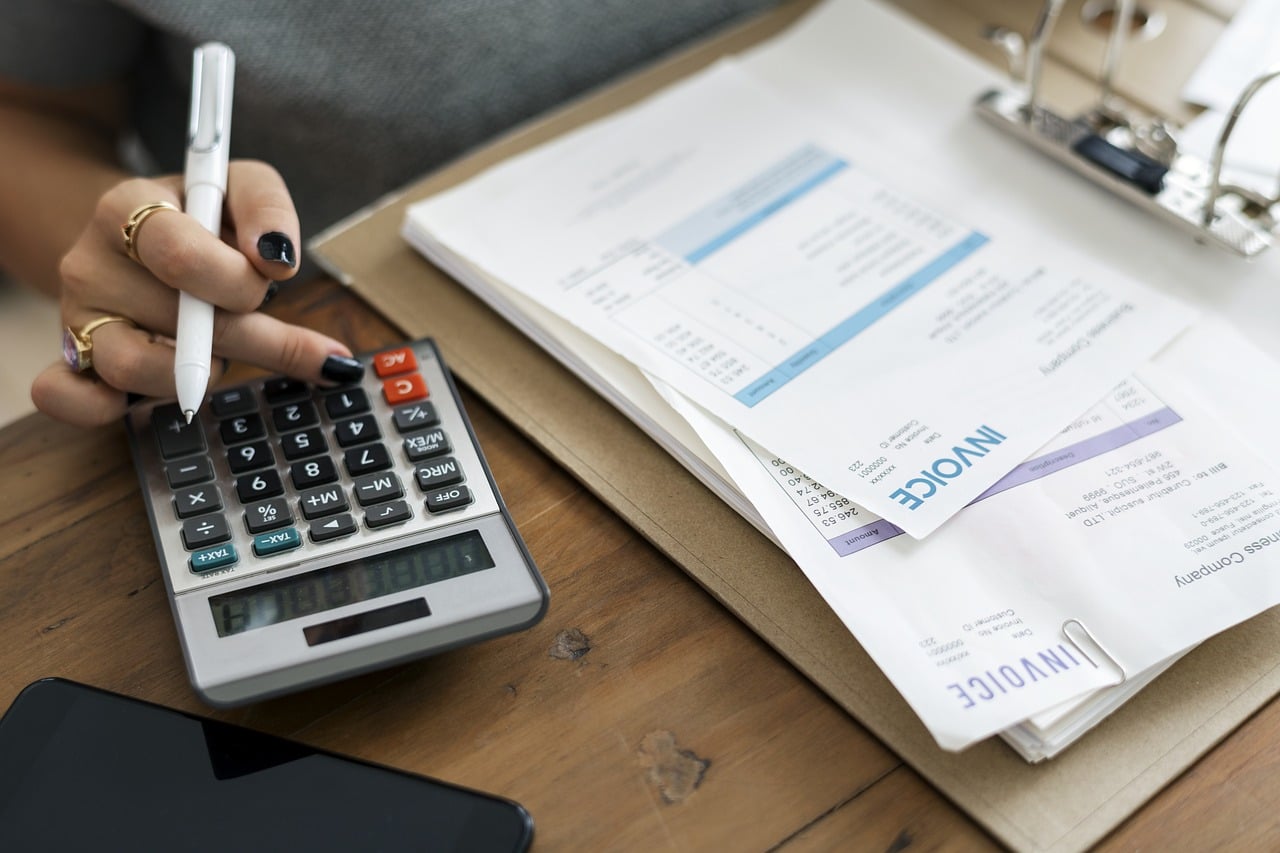Home>Finance>When Do Commercial Property Owners Typically Experience A Tax Loss On Their Investment?


Finance
When Do Commercial Property Owners Typically Experience A Tax Loss On Their Investment?
Published: December 2, 2023
Discover when commercial property owners commonly encounter a tax loss on their finance investments. Gain insights on tax strategies for commercial property owners.
(Many of the links in this article redirect to a specific reviewed product. Your purchase of these products through affiliate links helps to generate commission for LiveWell, at no extra cost. Learn more)
Table of Contents
- Introduction
- Understanding Tax Losses on Commercial Property Investments
- Factors that Impact Tax Losses on Commercial Property Investments
- Depreciation
- Interest Expenses
- Operating Expenses
- Changes in Market Conditions
- Timing of Property Improvements
- Impact of Rental Income
- Importance of Proper Recording and Documentation
- Conclusion
Introduction
Investing in commercial properties can be a lucrative venture, providing a steady stream of income and the potential for long-term capital appreciation. However, like any investment, it is essential for commercial property owners to understand the tax implications associated with their investment. One crucial aspect of taxation is the possibility of experiencing a tax loss on the property.
In simple terms, a tax loss occurs when the expenses incurred in owning and maintaining a commercial property exceed the income generated from it. This loss can be utilized as a deduction against other taxable income, potentially resulting in a reduction of overall tax liability. Understanding when and how tax losses can be incurred is crucial for commercial property owners to maximize their tax benefits and ultimately optimize their investment returns.
In this article, we will explore the factors that typically contribute to tax losses on commercial property investments. By understanding these factors, property owners can make informed decisions that can potentially minimize their tax burdens and maximize their after-tax returns.
Understanding Tax Losses on Commercial Property Investments
When it comes to commercial property investments, tax losses can occur as a result of various factors. These losses can be advantageous for property owners as they can offset taxable income from other sources, thereby reducing their overall tax liability.
One of the primary drivers of tax losses on commercial properties is depreciation. Depreciation is a non-cash expense that allows property owners to deduct a portion of the property’s value over its useful life. Since buildings and improvements deteriorate over time, the IRS allows property owners to account for the diminishing value of their investment. By deducting depreciation, property owners can lower their taxable income and potentially generate a tax loss.
Another factor that can contribute to tax losses is interest expenses. If a property owner has borrowed funds to finance the acquisition or improvement of a commercial property, the interest paid on the loan can be deducted as a business expense. These interest deductions can be substantial, especially in the early years of the loan term when interest payments are typically higher.
In addition to depreciation and interest expenses, operating expenses can also contribute to tax losses. Property owners can deduct various expenses incurred in operating and maintaining the property, such as property taxes, insurance premiums, repairs and maintenance costs, and property management fees. These deductions can help offset the rental income generated by the property and potentially result in a tax loss.
Changes in market conditions can also impact tax losses on commercial properties. If the rental market experiences a downturn or if property values decline, rental income may be insufficient to cover the expenses associated with the property. In such cases, property owners may incur tax losses as the expenses outweigh the income, providing an opportunity for tax deductions.
The timing of property improvements can also affect tax losses. Property owners may choose to make significant renovations or upgrades to their commercial premises. By strategically timing these improvements, property owners can expense the costs and generate tax losses in the year the improvements are made.
While tax losses can provide significant benefits for property owners, it is critical to consider the impact of rental income on these losses. The IRS has specific guidelines regarding the passive activity loss rules, which limit the amount of losses that can be deducted based on an individual’s involvement in the property’s operations.
Lastly, proper recording and documentation of income and expenses are crucial for maximizing tax benefits and minimizing the risk of audits. Maintaining accurate records, receipts, leases, and other relevant documentation will provide evidence of expenses incurred and ensure compliance with tax regulations.
By understanding the various factors that can contribute to tax losses on commercial property investments, property owners can effectively strategize their tax planning and optimize their overall investment returns.
Factors that Impact Tax Losses on Commercial Property Investments
Several factors can influence the extent of tax losses on commercial property investments. These factors can have a significant impact on the tax deductions that property owners can claim. By understanding these factors, property owners can make informed decisions that can potentially increase their tax savings and overall profitability. Let’s explore some of the key factors:
1. Depreciation:
Depreciation is a critical factor that impacts tax losses on commercial properties. The IRS allows property owners to deduct a portion of the property’s value over its useful life. Different assets within the property, such as buildings and improvements, have different depreciation periods. By depreciating the property’s value, property owners can reduce their taxable income, potentially resulting in tax losses.
2. Interest Expenses:
Interest expenses associated with financing the acquisition or improvement of a commercial property can be deducted as a business expense. These deductions can help lower taxable income and contribute to tax losses. Property owners should keep detailed records of their interest payments to maximize their potential tax deductions.
3. Operating Expenses:
Property owners can deduct a range of operating expenses, including property taxes, insurance premiums, repairs and maintenance costs, and property management fees. These deductions can offset rental income and result in tax losses. It is essential to maintain accurate records and receipts of these expenses to support deductions claimed.
4. Market Conditions:
Changes in market conditions can impact tax losses on commercial properties. For instance, if the rental market experiences a downturn, rental income may be insufficient to cover property expenses. Property owners may incur tax losses as a result, providing an opportunity for tax deductions. Conversely, a strong rental market may generate significant rental income, reducing the likelihood of tax losses.
5. Timing of Property Improvements:
The timing of property improvements can affect tax losses. Property owners may choose to make substantial renovations or upgrades on their commercial property. By strategically timing these improvements, property owners can expense the costs and generate tax losses in the year the improvements are made.
6. Passive Activity Loss Rules:
The IRS has specific guidelines regarding the passive activity loss rules. These rules limit the amount of losses that can be deducted based on an individual’s involvement in the property’s operations. Property owners should familiarize themselves with these rules to ensure compliance and optimize their tax losses.
7. Proper Recordkeeping:
Proper recording and documentation of income and expenses are crucial for maximizing tax benefits and reducing the risk of audits. Maintaining accurate records, receipts, leases, and other relevant documentation will provide evidence of expenses incurred and support the deductions claimed.
By considering these factors, commercial property owners can strategically manage their investments, maximize tax deductions, and potentially generate tax losses that can improve their overall financial position.
Depreciation
Depreciation is a critical factor that impacts tax losses on commercial properties. It refers to the decrease in value of a property over time due to wear and tear, deterioration, or obsolescence. The Internal Revenue Service (IRS) allows property owners to deduct a portion of the property’s value as depreciation expense each year, providing a significant tax benefit.
Depreciation helps property owners recover the cost of their investment over the property’s useful life, recognizing that buildings and improvements have a limited lifespan. The IRS provides guidelines on the depreciation method and useful life for different types of assets within the property. For example, commercial buildings are typically depreciated over 39 years using the Modified Accelerated Cost Recovery System (MACRS).
The annual depreciation deduction can be substantial and contribute to tax losses. By deducting a portion of the property’s value as an expense, property owners can reduce their taxable income and potentially generate a tax loss. For example, if a commercial property has a valuation of $1 million, the annual depreciation deduction could amount to tens of thousands of dollars, depending on the depreciation method and the asset’s useful life.
It’s important to note that while depreciation results in tax benefits upfront, it does not reflect the actual market value of the property. In some cases, a property may appreciate in value even as depreciation deductions are claimed. It’s essential to consider both the tax benefits and the property’s potential for capital appreciation.
There are two key methods of calculating depreciation: the straight-line method and the accelerated method. The straight-line method evenly distributes the depreciation expense over the useful life of the asset. This method provides a consistent deduction each year. The accelerated method, on the other hand, allows for greater deductions in the early years of the property’s life, gradually decreasing over time.
In addition to the depreciation of the building itself, property owners can also depreciate certain improvements made to the property, such as renovations, additions, or upgrades. The depreciation for these improvements is typically calculated over a separate useful life.
It’s important for property owners to keep accurate records of the property’s initial purchase cost and any subsequent improvements made. This documentation is critical for determining the depreciable basis of the property and ensuring compliance with IRS regulations. Property owners should consult with a tax professional or review the IRS guidelines to determine the appropriate depreciation method and useful life for their specific property.
Overall, depreciation is a crucial factor that impacts tax losses on commercial properties. By strategically considering depreciation deductions, property owners can significantly reduce their taxable income and potentially generate tax losses, enhancing the financial benefits of their investment.
Interest Expenses
Interest expenses play a critical role in the tax losses experienced by commercial property owners. When property owners finance the acquisition or improvement of a commercial property through loans, the interest paid on these loans can be deducted as a business expense. This deduction can significantly reduce taxable income and contribute to tax losses.
Interest expenses can encompass various types of financing arrangements, such as mortgages, lines of credit, or construction loans. These interest payments can be deducted annually, resulting in immediate tax benefits for property owners. In the early years of a loan term, when interest payments are typically higher, the potential tax deductions can be substantial.
It’s important for property owners to keep detailed records of their interest payments, including loan documents, statements, and receipts. This documentation is crucial for accurately claiming deductions and verifying the interest expenses incurred. Property owners should also consult with a tax professional or review the IRS guidelines to ensure compliance with the specific requirements for deducting interest expenses.
Additionally, it’s worth mentioning that tax regulations may have specific limitations or restrictions on deducting interest expenses. For example, the IRS may impose limits on the deductibility of interest expenses for certain high-income taxpayers or for loans used for non-business purposes. Property owners should be aware of these limitations and consult with a tax professional to understand their specific situation.
Furthermore, interest expense deductions are not limited to the financing of the property’s original purchase. If property owners decide to make improvements or renovations to their commercial property and finance these endeavors through loans, the interest incurred on those loans can also be deducted as a business expense. Just like the interest on the original purchase loan, it is essential to keep thorough documentation to support these deductions.
Properly managing interest expenses can help property owners generate tax losses and reduce their overall tax liability. By taking advantage of the business expense deduction for interest payments, property owners can optimize the financial benefits of their commercial property investments.
Operating Expenses
Operating expenses play a significant role in determining tax losses on commercial property investments. These expenses are the costs incurred to maintain and operate the property on an ongoing basis. Property owners can deduct various operating expenses from their rental income, potentially resulting in tax losses.
Operating expenses can include a wide range of costs, such as property taxes, insurance premiums, repairs and maintenance expenses, utilities, property management fees, and legal and accounting fees directly related to the property. These expenses can vary depending on the type of commercial property and its specific requirements.
Property taxes are a common operating expense that can be deducted. Property owners typically receive an annual tax assessment, and the amount paid in property taxes can be claimed as an expense. This deduction can significantly reduce taxable income and contribute to tax losses.
Insurance premiums are another deductible operating expense. Property owners must secure insurance coverage to protect their commercial property from potential risks, such as fire, theft, or natural disasters. The cost of insurance premiums can be deducted as a business expense, offsetting rental income and potentially generating tax losses.
Repairs and maintenance expenses are also deductible operating expenses. Property owners are responsible for keeping the property in good condition and ensuring that it meets the necessary safety and habitability standards. Costs incurred for routine maintenance, repairs, and even minor renovations can be deducted as business expenses. These deductions can help offset rental income and contribute to tax losses.
Utilities, including water, gas, electricity, and waste disposal, are necessary services for commercial properties. Property owners can deduct the costs of these utilities as operating expenses, providing further opportunities for tax deductions.
Property management fees are another deductible operating expense. If property owners hire a property management company to handle the day-to-day operations, administration, and leasing of the property, the fees paid to the management company can be considered operating expenses and deducted from rental income.
Legal and accounting fees directly related to the commercial property can also be deducted as operating expenses. These fees may be incurred for tasks such as lease negotiations, tax planning, audits, or general legal advice in relation to the property. Property owners should maintain proper documentation to support these deductions.
Accurately tracking and documenting operating expenses is essential for property owners to maximize their potential tax deductions. It’s crucial to keep organized records, including invoices, receipts, and statements, to support these expense claims. Property owners should consult with a tax professional or review the IRS guidelines to ensure compliance with specific requirements for deducting operating expenses.
By effectively managing and deducting operating expenses, commercial property owners can potentially generate tax losses, reduce their overall tax liability, and enhance the profitability of their investments.
Changes in Market Conditions
Changes in market conditions can significantly impact the tax losses experienced by commercial property owners. The rental market and property values are prone to fluctuations, and these changes can have a direct impact on the rental income generated and the expenses incurred on the property.
In a market downturn, rental income may decrease, or the property may experience vacancy for an extended period. When the rental income is insufficient to cover the expenses associated with the property, property owners may incur tax losses. These losses occur when the expenses outweigh the income, resulting in a negative net operating income (NOI).
By incurring tax losses during a market downturn, property owners can leverage these losses to offset other forms of taxable income, potentially reducing their overall tax liability. However, it’s important to note that tax laws may have limitations on the use of passive activity losses, which are losses generated from rental properties.
Additionally, changes in property values can impact tax losses. If property values decline, property owners may experience a decrease in rental revenue or face challenges in refinancing or selling the property. The reduced rental income can result in tax losses, providing a potential tax benefit for property owners.
Conversely, during a strong rental market, rental income may exceed the expenses associated with the property. Property owners may generate positive net operating income (NOI) and may not experience tax losses. In such cases, it’s crucial to ensure proper tax planning to optimize the tax benefits and minimize taxable income.
To effectively navigate changes in market conditions, property owners should stay informed about market trends, rental demand, and property values. Regularly reviewing rental rates and comparing them to the property’s expenses can help property owners identify potential tax loss opportunities or take advantage of positive NOI to mitigate their tax liability.
It’s important to note that market conditions can vary regionally and by property type. Property owners should assess their specific situation and consult with professionals, such as real estate agents or property managers, to gain insights into the local market conditions and their potential impact on tax losses.
Properly monitoring and adapting to changes in market conditions can enable commercial property owners to strategically manage their investments, optimize tax deductions, and ultimately enhance their overall financial position.
Timing of Property Improvements
The timing of property improvements can have a significant impact on the tax losses experienced by commercial property owners. Property owners often make renovations, upgrades, or additions to enhance the property’s value, functionality, or aesthetics. By strategically timing these property improvements, owners can generate tax losses in the year the improvements are made, resulting in potential tax deductions.
When property improvements are made, the costs associated with these improvements can be deducted as business expenses. However, the manner in which these expenses are deducted depends on the classification of the improvement.
If an improvement is considered a repair, it can typically be deducted in the same year the expense is incurred. Repairs generally involve restoring or maintaining the property’s existing condition. These could include fixing broken windows, repainting walls, or repairing plumbing systems.
On the other hand, if an improvement is considered a capital improvement, the costs are typically amortized or depreciated over a longer period. Capital improvements involve adding value to the property or substantially prolonging its useful life. These may include major renovations, expansions, or installation of new fixtures or equipment.
Strategic timing of capital improvements can be crucial for generating tax losses in the year the improvements are made. By planning major renovations or upgrades in a specific tax year, property owners can benefit from the immediate deduction of the expenses and potentially generate tax losses.
Property owners should consult with a tax professional or review the IRS guidelines to determine the classification of their specific property improvements and the appropriate tax treatment. It’s important to keep detailed records of all improvement costs, including invoices, receipts, and construction contracts, to support the deduction claims and ensure compliance with tax regulations.
Additionally, property owners should consider the potential tax impact of property improvements when evaluating project timelines and budgeting. By understanding the potential tax benefits of timing property improvements, owners can effectively manage their cash flow and assess the overall return on investment.
Timing property improvements strategically can provide property owners with the opportunity to generate immediate tax deductions and potentially reduce their overall tax liability. By aligning the timing of improvements with their tax objectives, commercial property owners can optimize their tax losses and enhance the financial benefits of their investments.
Impact of Rental Income
Rental income is a significant factor that affects the tax losses experienced by commercial property owners. The amount of rental income generated plays a crucial role in determining the profitability of the investment and the potential for tax deductions.
In general, rental income is considered taxable income and is subject to federal, state, and local taxes. However, property owners can offset this rental income by deducting various expenses incurred in owning and operating the property, potentially resulting in tax losses.
If the expenses associated with the property, such as mortgage interest, property taxes, insurance premiums, repairs, and maintenance costs, exceed the rental income, property owners may incur tax losses. These losses occur when the expenses outweigh the income, providing an opportunity to deduct the losses against other forms of taxable income, potentially reducing the overall tax liability.
It’s important for property owners to accurately track and document rental income and related expenses. Keeping organized records of lease agreements, rent receipts, and expense receipts will help ensure compliance with tax regulations and support deductions claimed.
However, it’s worth noting that the Internal Revenue Service (IRS) has specific guidelines regarding the treatment of rental losses. The IRS classifies rental activities as either active or passive. Active participation in rental activities allows property owners to fully deduct rental losses against other forms of income, such as salaries or business profits. Passive participation in rental activities, on the other hand, may limit the amount of rental losses that can be deducted based on an individual’s level of involvement in the property’s operations. Property owners should familiarize themselves with these guidelines and consult with a tax professional to understand the specific rules and limitations that may apply.
Property owners should also consider the impact of rental income when evaluating the potential tax benefits of their investment. Higher rental income can reduce the likelihood of tax losses, as it may exceed the expenses associated with the property. Property owners should strike a balance between rental income and expenses to ensure they are maximizing their tax deductions without compromising the profitability of the investment.
Furthermore, rental income can also be impacted by market conditions, tenant turnover, and rental rate fluctuations. It’s essential for property owners to stay informed about the rental market and adjust rental rates in line with market trends to optimize rental income.
By carefully managing and monitoring rental income, property owners can strategically optimize their tax deductions, potentially generating tax losses and reducing their overall tax liability.
Importance of Proper Recording and Documentation
Proper recording and documentation are crucial for commercial property owners to maximize their tax benefits and minimize potential issues with tax authorities. Accurate record-keeping is essential for supporting deductions, ensuring compliance with tax regulations, and providing evidence of income and expenses reported on tax returns.
Here are several reasons why proper recording and documentation are so important:
1. Supporting Deductions:
Detailed records serve as evidence to support the deductions claimed on tax returns. This includes expenses such as property taxes, mortgage interest, repairs and maintenance costs, insurance premiums, and other related costs. Without proper documentation, property owners may struggle to substantiate these deductions, potentially leading to disputes with tax authorities.
2. Compliance with Tax Regulations:
Proper recording and documentation help ensure compliance with tax regulations and reporting requirements. Commercial property owners need to follow specific guidelines in reporting rental income, depreciation, and deductible expenses. Accurate record-keeping demonstrates a commitment to meeting tax obligations and reduces the risk of being audited.
3. Audit Protection:
In the event of an audit, proper documentation becomes even more critical. Detailed records provide a clear audit trail of income and expenses, making it easier for property owners to respond to inquiries from tax authorities. Having organized and well-documented records can help demonstrate that deductions claimed are substantiated and accurate.
4. Maximizing Tax Benefits:
Proper recording and documentation can help property owners identify and maximize tax benefits. By accurately tracking expenses, property owners can claim all eligible deductions, including depreciation, interest expenses, operating costs, and property improvements. This can result in higher tax savings and potentially generate tax losses.
5. Legal Compliance:
Recording and documentation help property owners ensure compliance with legal requirements. Maintaining accurate records is crucial in case of legal disputes, tenant issues, or property transactions. It provides a solid foundation for resolving conflicts and protecting the property owner’s interests.
6. Financial Planning and Analysis:
Accurate records enable property owners to assess the financial performance of their investments. By analyzing income and expenses over time, property owners can make informed decisions about rent increases, cost-saving measures, property improvements, and overall investment strategies.
7. Time and Cost Savings:
Consistent and proper recording of income and expenses can save property owners time and money. By maintaining organized records and documentation throughout the year, property owners can avoid scrambling to gather information during tax season. This saves time and reduces the chance of errors, leading to more efficient tax preparation processes.
Proper recording and documentation are essential for commercial property owners to effectively manage their tax obligations, optimize their tax benefits, and ensure compliance with tax regulations. By maintaining accurate records, property owners can navigate the complexities of tax reporting with confidence and mitigate potential risks associated with audits or disputes.
Conclusion
Understanding the factors that impact tax losses on commercial property investments is essential for property owners to maximize their tax benefits and optimize their investment returns. Depreciation, interest expenses, and operating expenses are key elements that contribute to tax losses. By strategically managing these expenses, property owners can generate tax deductions and potentially generate tax losses, reducing their overall tax liability.
Additionally, property owners should consider the impact of market conditions on tax losses. Changes in the rental market and property values can affect the rental income generated and, in turn, the potential for tax losses. Property owners should stay informed about market trends and adjust rental rates accordingly to optimize rental income and potential tax deductions.
Timing property improvements and properly documenting income and expenses are crucial aspects of generating tax losses. By strategically timing property improvements, owners can generate immediate tax deductions and potentially reduce their tax liability. Maintaining accurate records and documentation ensures compliance with tax regulations, supports deductions, and provides protection in the event of an audit or dispute.
In conclusion, commercial property owners need to be diligent in managing their tax obligations and optimizing their tax benefits. By understanding the factors that impact tax losses and implementing proper strategies for recording, documenting, and timing property improvements, owners can potentially generate tax losses, reduce their overall tax liability, and enhance the financial benefits of their investments.










